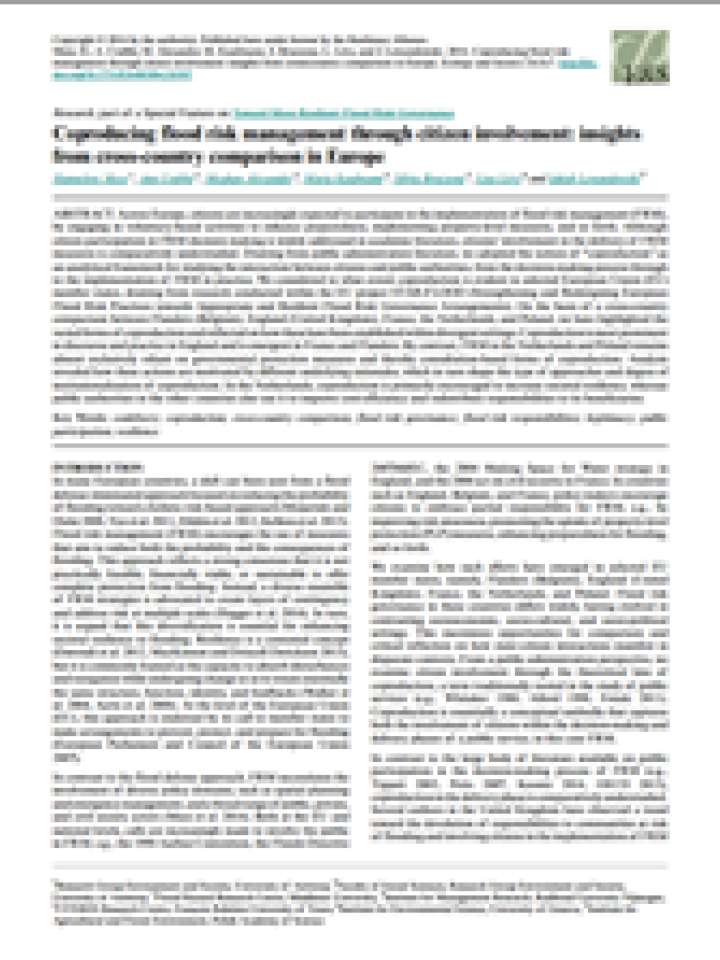Coproducing flood risk management through citizen involvement: insights from cross-country comparison in Europe
Drawing from public administration literature, this research adopts the notion of “coproduction” as an analytical framework for studying the interaction between citizens and public authorities, from the decision-making process through to the implementation of flood risk management (FRM) in practice.
On the basis of a cross-country comparison, the research highlighted the varied forms of coproduction and reflected on how these have been established within divergent settings. Coproduction is most prominent in discourse and practice in England and is emergent in France and Flanders. By contrast, FRM in the Netherlands and Poland remains almost exclusively reliant on governmental protection measures and thereby consultation-based forms of coproduction.
Analysis revealed how these actions are motivated by different underlying rationales, which in turn shape the type of approaches and degree of institutionalization of coproduction. In the Netherlands, coproduction is primarily encouraged to increase societal resilience, whereas public authorities in the other countries also use it to improve cost-efficiency and redistribute responsibilities to its beneficiaries.
Ecology and Society 21(3): 7. Part of "Toward More Resilient Flood Risk Governance" and shared under a Creative Commons Attribution-NonCommercial 4.0 International License (CC BY-NC 4.0).
Explore further
